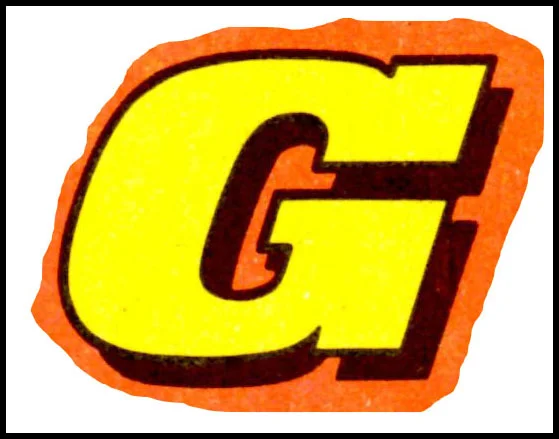Sparky, cover date 1 September 1973
Here’s a fun Barney Bulldog cover by Bill Ritchie. Barney is actually the dog whose paw is seen exiting stage right, not the angry pooch. It’s a great design: that block-type Sparky title gives the cover the look of a bill poster.
Sparky is a lively comic, part-comprising a number of strips which first appeared in the 1930s: Hungry Horace (art here by Albert Holroyd), Keyhole Kate and Pansy Potter were all in early editions of The Dandy, and Peter Piper (Vic Neill) was in 1939’s The Magic Comic.
These are mixed with a number of other fun stories that I fondly recall from Sparky’s eventual merge into The Topper (with Horace and Peter). Ali’s Baba (Malcolm Judge) and ‘L’ Cars (Bill Hill), brutal Puss and Boots (John Geering) and eccentric The Sparky People (Jim Petrie).
The comic has some bold two-pagers: Klanky (John Fox), Mr Bubbles, Jumbo and Jet and – smirk – Invisible Dick (Tony Speer). There are a number of other strips too, most of them clever and quirky, surprising and diverse, a cut above some of the more formulaic comics of the era.
So I was really enjoying this issue until I came to the Spoofer McGraw (He Tells Tall Tales) story on the inside back cover. A warning before you read it: the racial stereotyping is shameful.
This sort of thing wasn’t just going on in Sparky. Racist and xenophobic tropes were rife in British comics at least until the late 1970s, as was sexism, body-shaming and various other forms of othering. IPC’s Cheeky was particularly bad in this respect.
When Sparky launched in 1965, its title character was a grossly racist representation. Lew Stringer’s Crikey blog gives a good account of this, saving me the need to post any pictures: http://lewstringer.blogspot.com/2015/01/sparky-early-years.html
This post isn’t a rant about Sparky or about comics as such. It’s about the culture in which we grew up, the ideas and assumptions that were accepted as the norm. The comics are a lens through which we can examine ourselves, individually and as a society.
We’ve all seen ‘It Was Alright in the 70s’ shows. We laugh, cringe, and then ask ourselves: why are we laughing? Many of us grew up in those times. We know and understand arguments that ‘this is just how it was ’, ignorance is not the same as intentional offence, etc. However …
... whether or not offence was intended, offence is caused. Prejudice, and the right to mock anyone for being not one of us, was ingrained. And it’s not confined to the past. Would 60s/70s Sparky be allowed today, say in a world governed by Farage/Trump/Musk et al? Probably, yes.
I suppose it’s a form of original sin; we may not consider ourselves to be, or to have been, racist, but the culture of which we were a constituent part was – so I think we have to own it, to name it when we see it, and to continue to fight against it today.

















